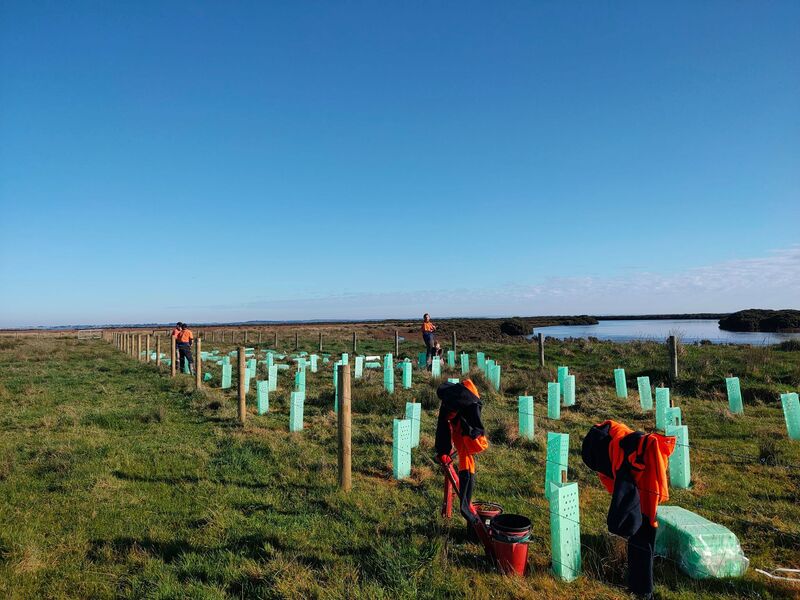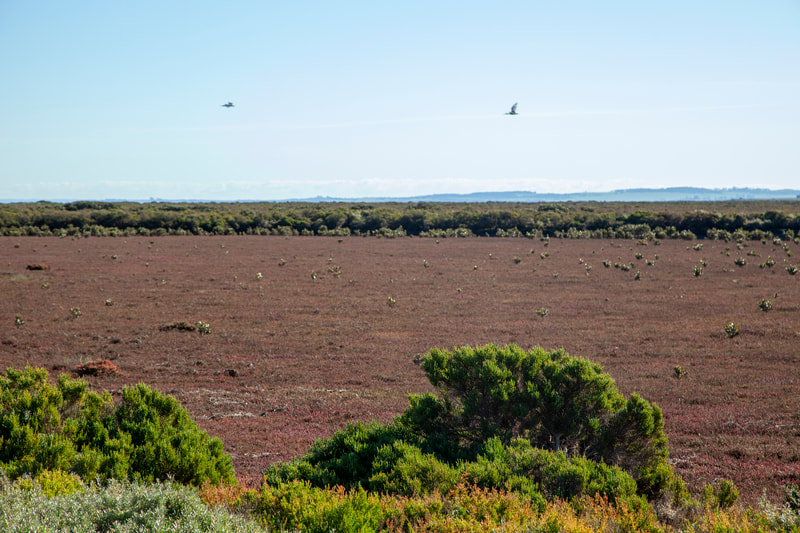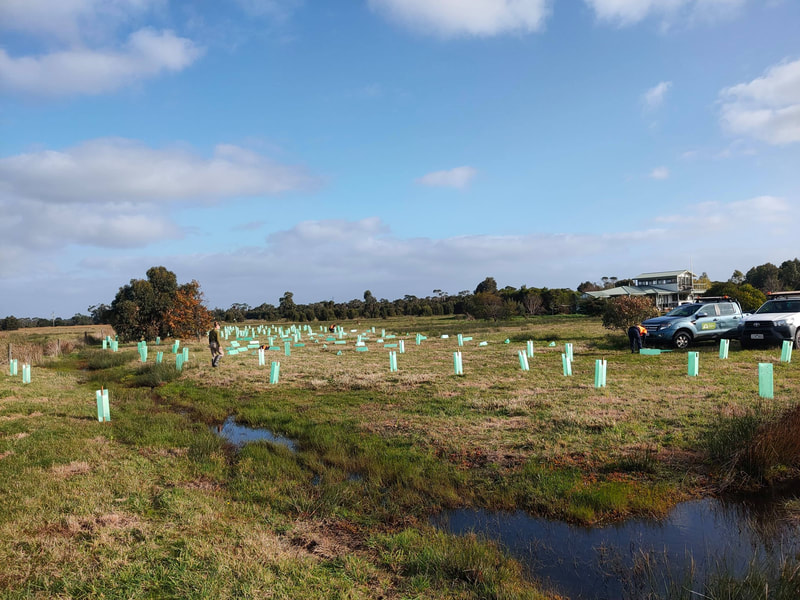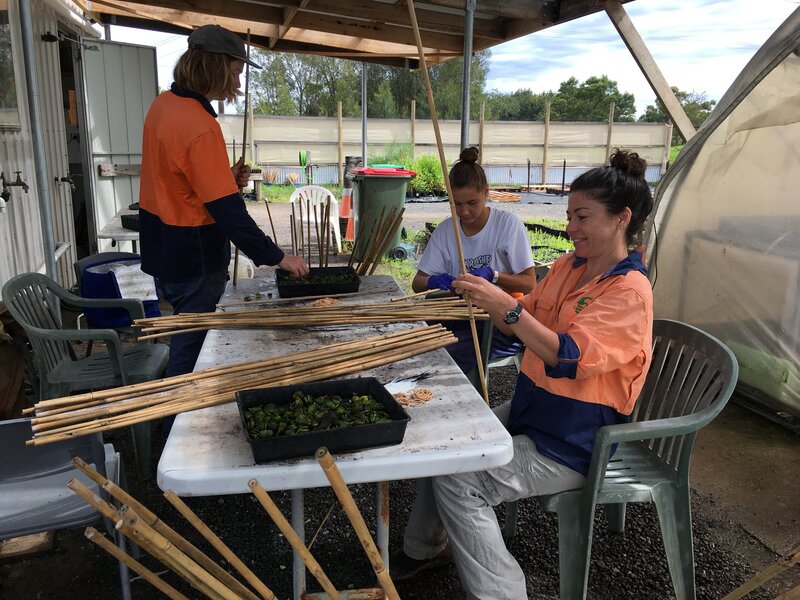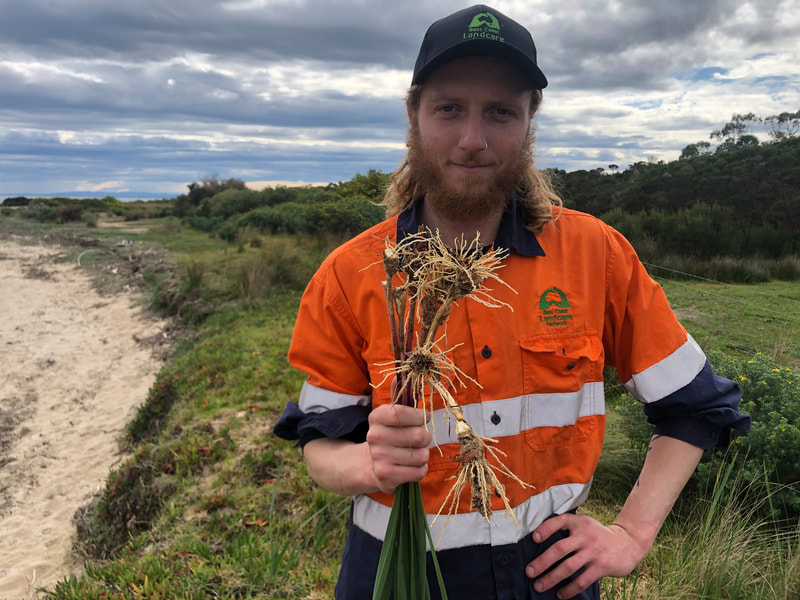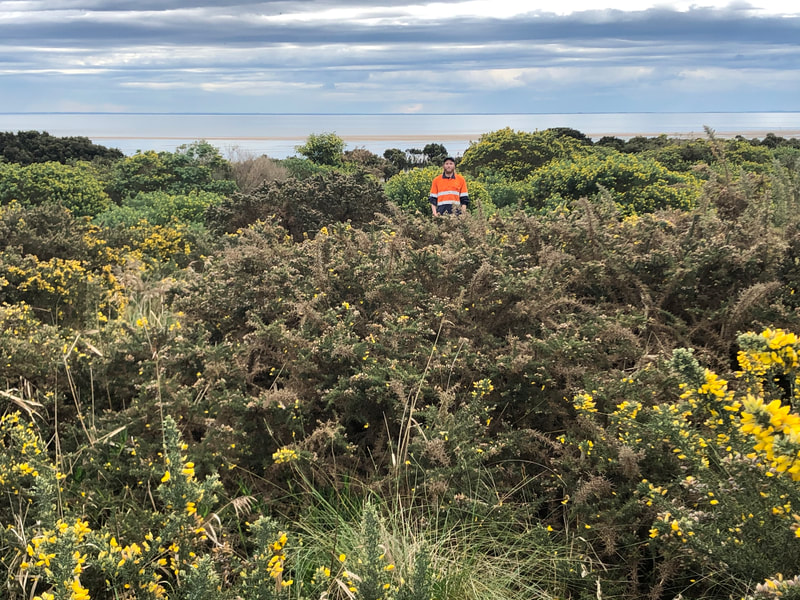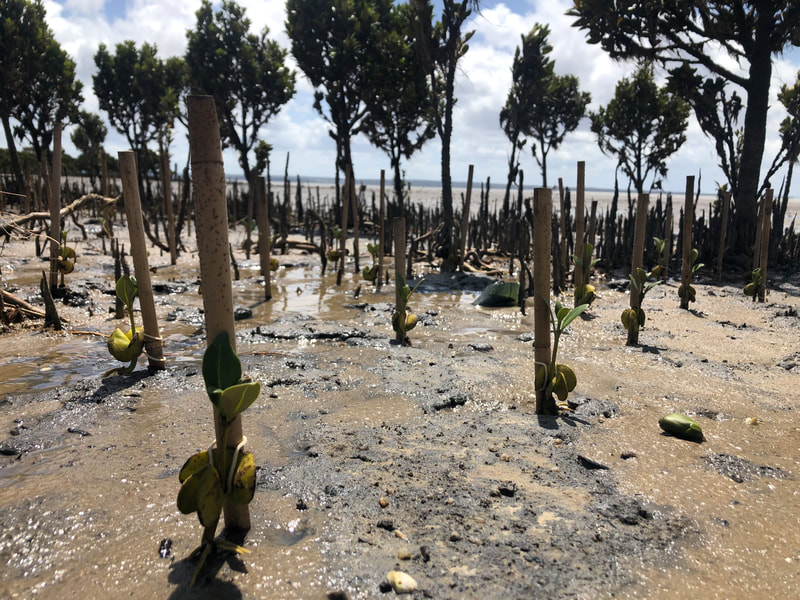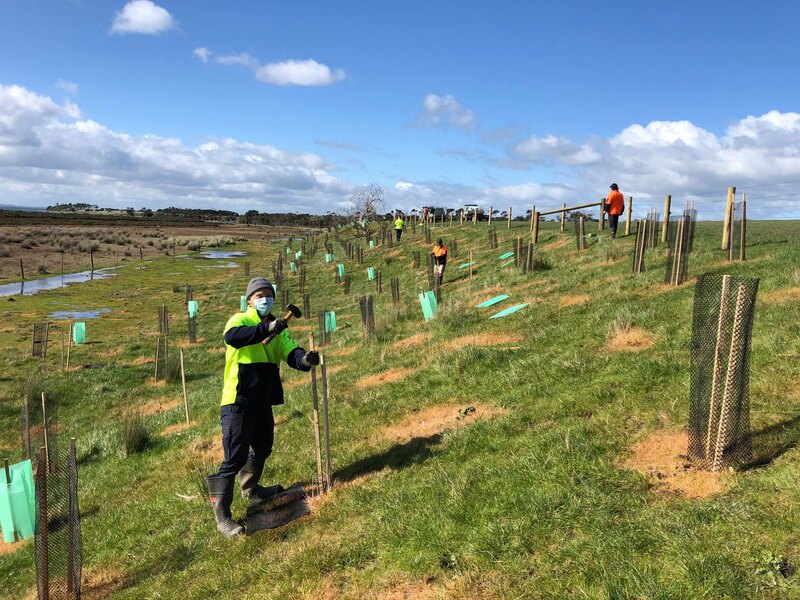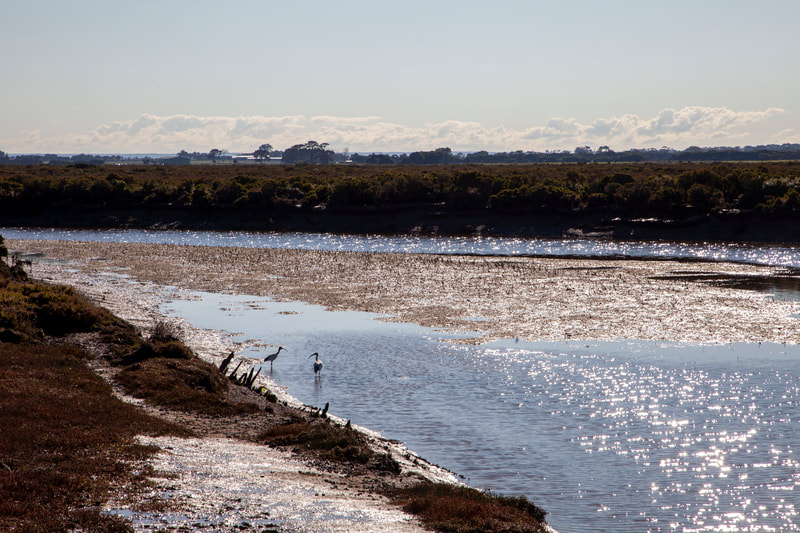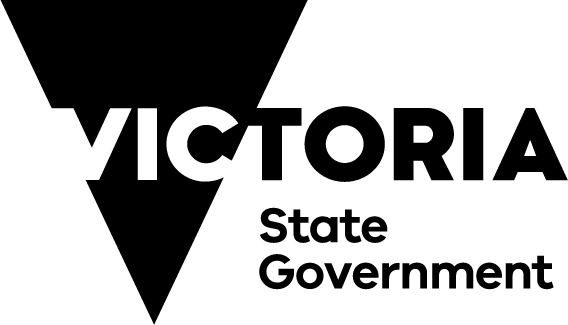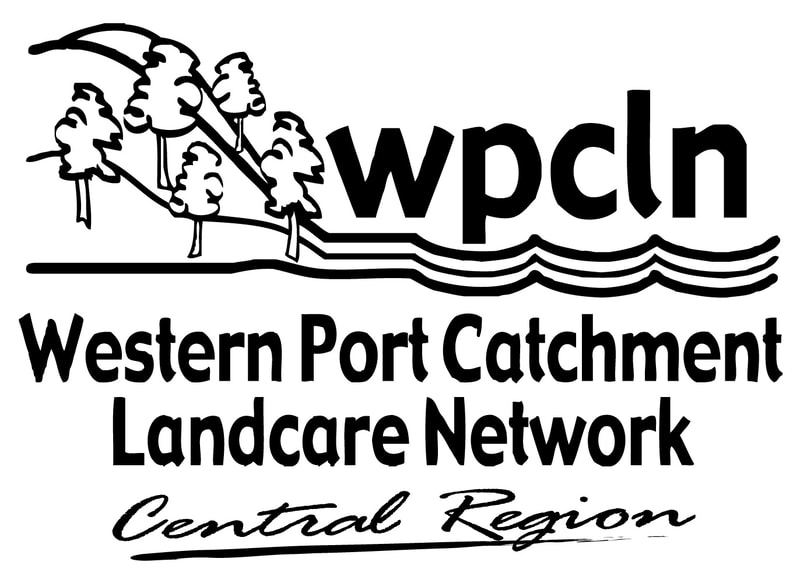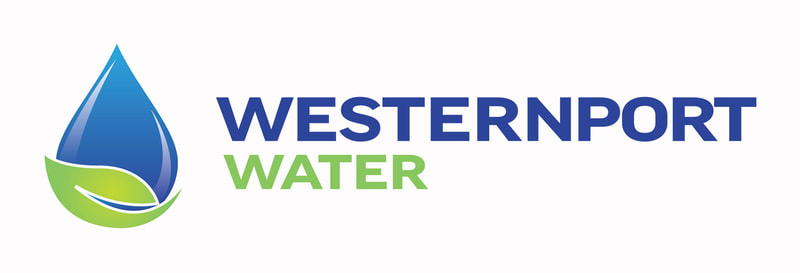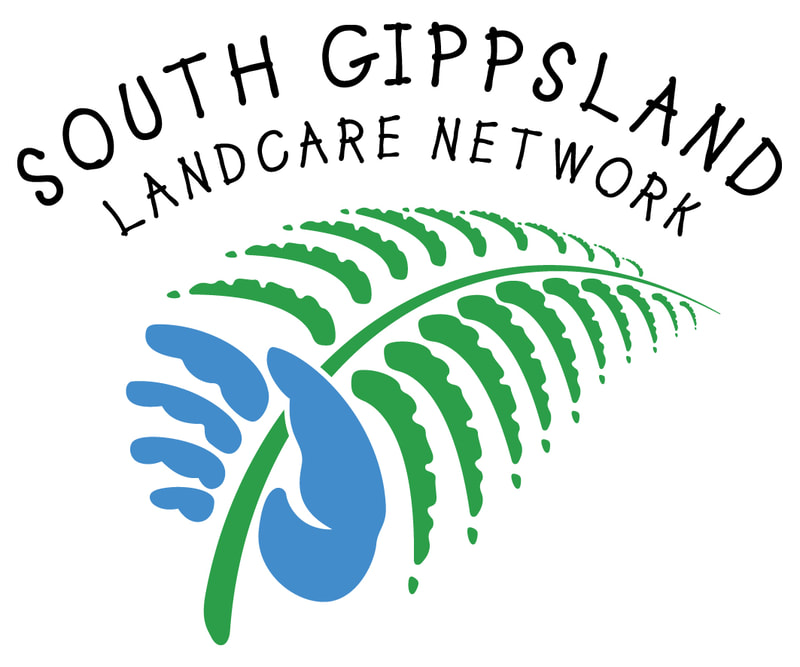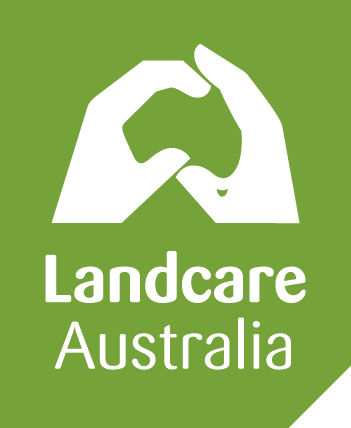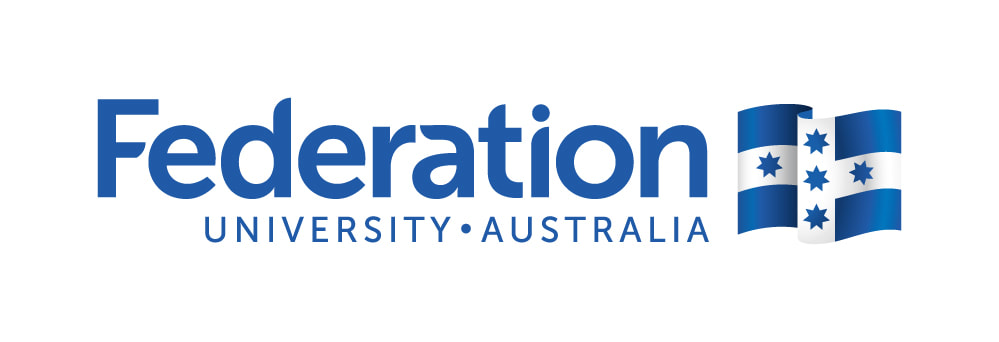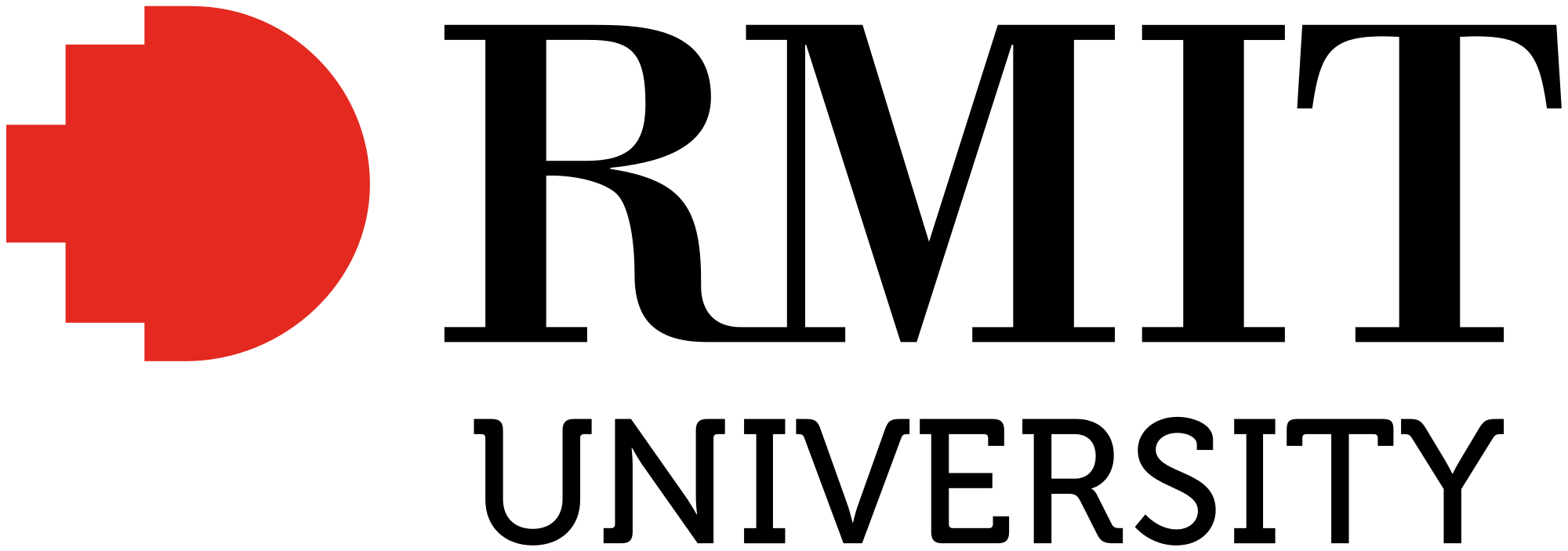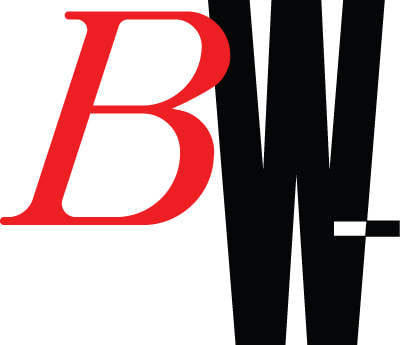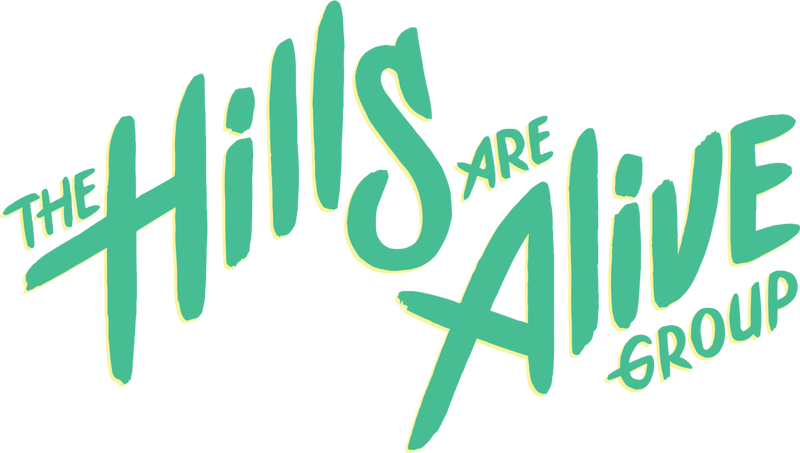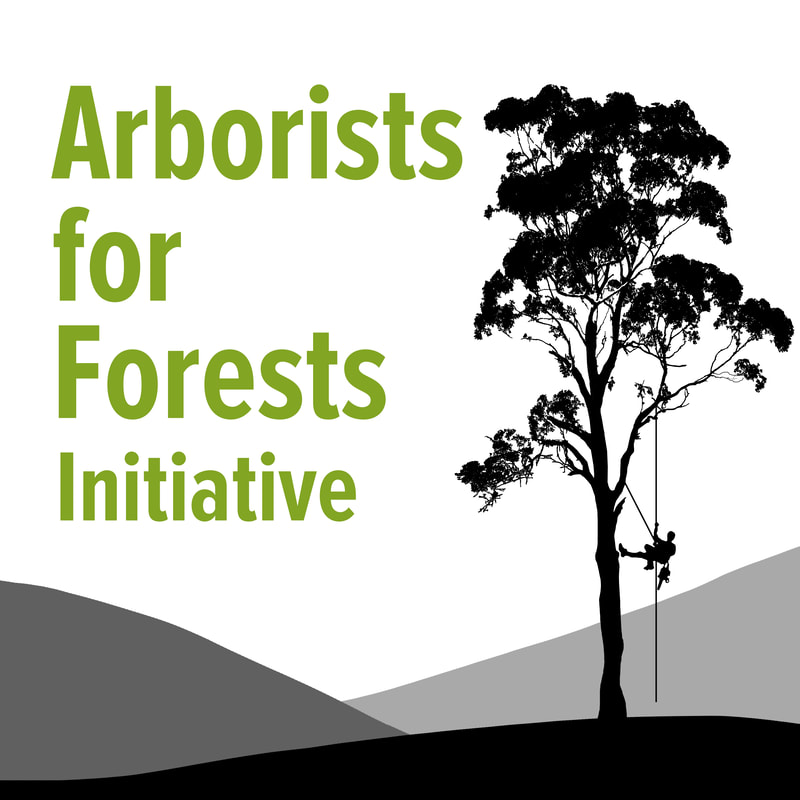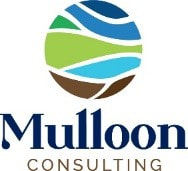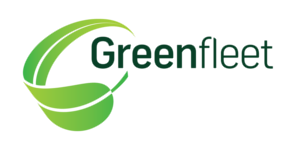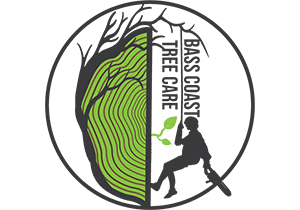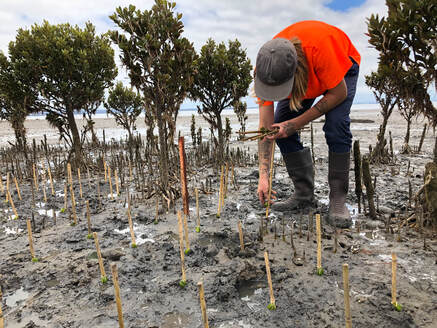
Our Ramsar Protection project was funded by PPWCMA, to protect high coastal erosion sites and coastal areas of ecological significance around Western Port.
We have been working across 8 sites around the bay, with a range of project activities, including: establishment of mangroves, controlling pest plants and animals, landholder engagement and revegetation of coastal sites.
This year we have planted 3,500 mangroves across 4 sites where the loss of mangrove communities has led to destructive coastal erosion. Most of the mangroves have been planted using a direct seeding method, where the mangrove seeds are attached to bamboo stakes with a rubber band and cable tie and lodged into the ground in the intertidal zone. Recent monitoring of the mangroves in June 2020 (4-6 months after planting), shows an average of approximately 30% survival rate, however at our largest site, survival is as high as 66%. Mangroves have proven to be one of the most difficult plant species to establish and we are optimistic about the continual manipulation and improvement of methods to increase survival rates in future projects.
We have planted 6,500 terrestrial plants in coastal areas to combat coastal erosion, provide habitat to indigenous species and develop a buffer zone at the agricultural and coastal interface. We have also completed approximately 100 hectares of weed control in high ecological value sites, targeting African Box Thorn, Bridal Creeper, Gorse, Cape Tulip, Montbretia and many other inhibiting weeds.
This spring, we will continue to control weeds in coastal saltmarsh EVC and other coastal vegetation communities of high value and we hope to continue building on our Ramsar Protection project in the coming years.
If your property adjoins the coast and you would like some support and/or advice in managing your coastline, please do not hesitate to contact us.
We have been working across 8 sites around the bay, with a range of project activities, including: establishment of mangroves, controlling pest plants and animals, landholder engagement and revegetation of coastal sites.
This year we have planted 3,500 mangroves across 4 sites where the loss of mangrove communities has led to destructive coastal erosion. Most of the mangroves have been planted using a direct seeding method, where the mangrove seeds are attached to bamboo stakes with a rubber band and cable tie and lodged into the ground in the intertidal zone. Recent monitoring of the mangroves in June 2020 (4-6 months after planting), shows an average of approximately 30% survival rate, however at our largest site, survival is as high as 66%. Mangroves have proven to be one of the most difficult plant species to establish and we are optimistic about the continual manipulation and improvement of methods to increase survival rates in future projects.
We have planted 6,500 terrestrial plants in coastal areas to combat coastal erosion, provide habitat to indigenous species and develop a buffer zone at the agricultural and coastal interface. We have also completed approximately 100 hectares of weed control in high ecological value sites, targeting African Box Thorn, Bridal Creeper, Gorse, Cape Tulip, Montbretia and many other inhibiting weeds.
This spring, we will continue to control weeds in coastal saltmarsh EVC and other coastal vegetation communities of high value and we hope to continue building on our Ramsar Protection project in the coming years.
If your property adjoins the coast and you would like some support and/or advice in managing your coastline, please do not hesitate to contact us.

